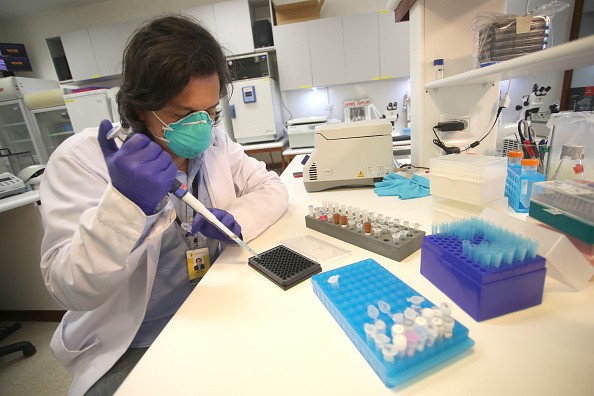Vitamin D Deficiency Linked to COVID-19 Risk, New Study Finds
Vitamin D deficiency correlates with the risk of contracting COVID-19 disease, according to a new study.
The study, which was published on Thursday in the Journal of the American Medical Association, suggests that the lack of vitamin D increases the risk of contracting COVID-19. However, researchers believe that further research is needed.
According to CTV News, the study examined 489 people who were tested for COVID-19 between March 3 and April 10 and tested for vitamin D deficiency in the year before their testing.

The results showed that 19 percent of the vitamin D deficient people tested positive for COVID-19, compared to 12 percent of the vitamin D sufficient people.
"The multivariable analysis suggests that persons who are likely to have deficient vitamin D levels at the time of COVID-19 testing were at substantially higher risk of testing positive for COVID-19 than were persons who were likely to have sufficient levels," the researchers stated.
The researchers admitted that there were several limitations to their study. Such restrictions include the idea that people with vitamin D deficiency usually have different risk factors linked with COVID-19 like obesity, diabetes, and advanced age.
The study noted that observed associations of vitamin D with results in almost any observational study may fail to give an accurate reflection on any potential causal effects of vitamin D on outcomes.
However, it said that the meta-analysis of randomized clinical trials supports analysis controls for many of these factors, and the idea that adequate vitamin D levels could prevent COVID-19.
Meanwhile, a same study in the U.K. found no statistical relationship between vitamin D deficiency and COVID-19 risk. But the researchers used vitamin D data from 10 to 14 years prior to the subjects' coronavirus testing and compared to the one-year timeline of their latest research.
The researchers believed that their latest findings warrant clinical trials of vitamin D where subjects are given different doses to understand how vitamin D may further impact the risk of COVID-19.
The link between vitamin D and other respiratory illnesses is well known. Vitamin D deficiency has been linked to tuberculosis, bronchiolitis, and pneumonia, according to the World Health Organization.
In May, the CTV News reported that researchers in Edmonton in Canada were preparing a study to see if there will be any benefit in boosting vitamin D levels in a COVID-19 patient's bloodstream.
According to a research in New Orleans, 100 percent of its sickest COVID-19 patients lack vitamin D. On the other hand, researchers in Ireland found that COVID-19 infections and deaths decreased in countries where vitamin D is added to food.
Also, people in Finland and Norway are encouraged to take vitamin D supplements and these countries manifest lower COVID-19 deaths and infections.
Check these out:
Latin American Hospitals Allowing Visitors of Dying COVID-19 Patients Increases
Nevada Man Becomes First Case of COVID-19 Reinfection in US
Why Women May Experience Less Severe COVID-19 Disease than Men
Subscribe to Latin Post!
Sign up for our free newsletter for the Latest coverage!

















